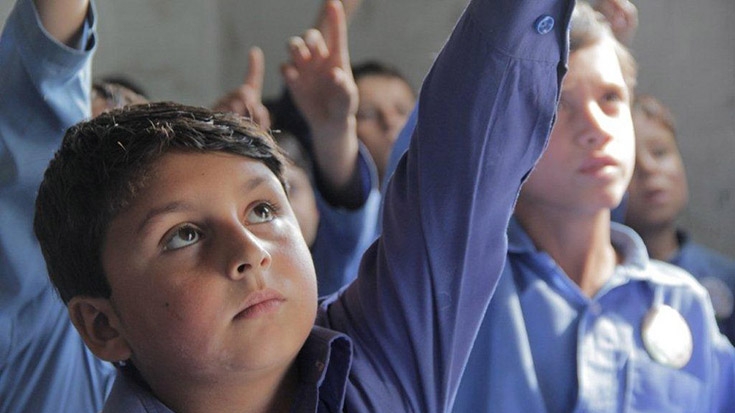As the ERKF disburses grants to 887 SMEs against a target of 850, many inspiring stories are emerging from the field.
Among them is that of 23-year-old Gul Rukh[i] from a village in North Waziristan, FATA. Before the crisis, she ran a successful embroidery business, through which she supported her family of eight, including her ailing father, four younger brothers and three sisters. Her family had to migrate to Dera Ismail Khan in KP in the aftermath of the crisis.
Recalling that difficult time, Gul Rukh says “We faced alarming difficulties due to fighting and displacement. We did not have enough money to fulfill our basic needs. After settling down in D. I. Khan, I set up the embroidery business. A few girls from the neighborhood joined in and started to learn embroidery work in our training center. Though, we were working very hard, our basic needs were not being fulfilled”.
Gul Rukh realized that she needed to expand her business but did not have the funds to purchase the necessary raw material and machinery. She applied for an grant of USD $19,120. ERKF verified the authenticity of her claim and in a couple of weeks, released the first tranche. As planned, the grant was used to purchase machinery and raw materials. Today, Gul Rukh works with her sisters in the centre and has built a reputation for being an excellent trainer.
“We are now earning enough money not just to fulfil our daily needs but to support our younger siblings in completing their education. Thirteen girls are enrolled in our training centre. The demand is seasonal but it is a great business, especially for women. We are really grateful for the opportunity as it will help women jumpstart their career and limit their dependency on male counterparts.” says Gul Rukh.
Habib-Ullah also had a similar journey. He had been running a very successful marble business since 1995 in Swat, KP. “We were the top supplier of marble in the area and our products were in high demand. We had around twenty full-time employees and few contractors,” Habib-Ullah recalls.
With the onset of the crisis, things drastically changed for Habib-Ullah.
“The militant command and control headquarter was close to my factory. Their presence badly affected our business; purchase orders almost dropped to zero and business debts and expenses piled up. We had no choice but to shut down the factory for a year.” Habib-Ullah says.
“As the security operations started, our factory suffered collateral damage. We lost approximately PKR. 8 million (US$ 88,888) worth of machinery and raw material,” Habib-Ullah adds.
“I was devastated and hospitalized for months. I lost everything. I could not afford to pay the tuition fee for my children. I got them out of school,” Habib-Ullah says.
Habib-Ullah applied for the ERKF grant and received PKR 2.5 million (USD 24,500). Most of the grant was used to purchase raw material and rebuild infrastructure. With his business flourishing, Habib-Ullah has now employed 9 full time workers. “With this grant, I anticipate my annual income would increase to PKR. 1.3 million (US $ 14,170) per year,” he says.
The ERKF has provided grants to a range of SMEs in both KP and FATA including marble factories, flour mills, handlooms, traders and retailers. An estimated 2,400 direct and 9,000 indirect jobs have been created through this effort. The ERKF supports the government in creating sustainable livelihoods thus contributing towards building of state-citizen trust across KP and FATA, lack of which was considered a key driver of the crisis.
[i] Names have been changed in the interest of security


